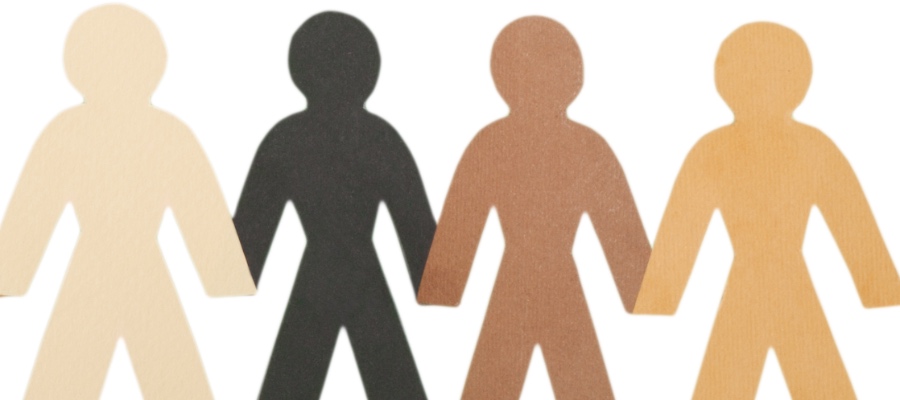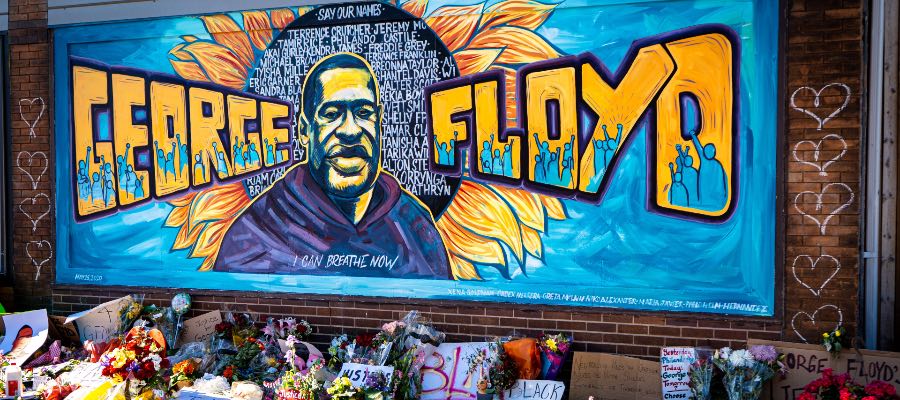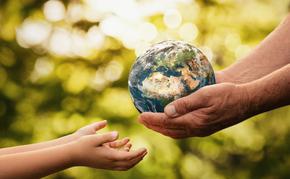The views expressed in our content reflect individual perspectives and do not represent the authoritative views of the Baha'i Faith.
Before we can address how we can each foster positive race relations in the United States, we need to first unpack what race is and how these divisions were created.
Is Race a Social Construct?

What is race? Is it a culture, color, species, or construct? One of Merriam Webster’s definitions of “race” is “the descendants of a common ancestor: a group sharing a common lineage.”
But, if science has already proven that we all descend from the same common ancestor in Africa and that we are all 99.9% the same in our genetic makeup, should we still be seeing ourselves as different ‘races’?
Baha’is believe that we all are one human race. In a talk in Paris in 1911, Abdu’l-Baha, one of the central figures of the Baha’i Faith, said that race “is an illusion, a superstition pure and simple! For God created us all of one race. There were no differences in the beginning, for we are all descendants of Adam. In the beginning, also, there were no limits and boundaries between the different lands; no part of the earth belonged more to one people than to another. .. Why should man invent such a prejudice? How can we uphold war caused by an illusion?”
In the 17th century, the construct of race — and racist ideologies — were adopted to justify European colonization and the enslavement of African people. The racist idea that white Europeans and Americans are genetically superior created racial tensions and divisions that have lasted to this day.
This spread of racism is seen as a spiritual illness in the Baha’i Faith and is regarded as America’s “most vital and challenging issue.”
Race Relations in the US Today

Since the colonization of the United States, people of color, especially Black and Indigenous people, have faced severe oppression, dehumanization, and marginalization.
From genocides and slavery to Jim Crow and police brutality, it’s not surprising that according to a PEW survey from 2019, most Americans — 58% to be exact — say race relations are bad in the U.S. And that same survey pointed out that 53% of Americans believe race relations are getting worse.
RELATED: How to Be a Better Ally for Racial Justice
None of this should be surprising. After centuries of injustice and systemic racism, our nation needs a lot of healing. But time alone won’t heal these wounds.
How to Create Positive Race Relations in the US

So, what can each of us do to contribute to racial healing and foster positive interracial relationships in the U.S.? In 1938, Shoghi Effendi, the great-grandson of the prophet and founder of the Baha’i Faith, listed specific steps that white and Black people can do to ensure that America’s destiny is one of racial unity.
Understanding the implicit bias that much of the more privileged communities have and the generational trauma that Black people still endure, he advised white people to:
1. “make a supreme effort in their resolve to contribute their share to the solution of this problem,”
2. “abandon once for all their usually inherent and at times subconscious sense of superiority,”
3. “correct their tendency towards revealing a patronizing attitude towards the members of the other race,”
4. “persuade them through their intimate, spontaneous and informal association with them of the genuineness of their friendship and the sincerity of their intentions, and”
5. “master their impatience of any lack of responsiveness on the part of a people who have received, for so long a period, such grievous and slow-healing wounds.”
In response to these actions, he asked Black people “through a corresponding effort on their part” to show:
1. “the warmth of their response,”
2. “their readiness to forget the past, and”
3. “their ability to wipe out every trace of suspicion that may still linger in their hearts and minds.”
And he instructed everyone, regardless of their background, to manifest:
1. “genuine love,”
2. “extreme patience,”
3. “true humility,”
4. “consummate tact,”
5. “sound initiative,”
6. “mature wisdom, and”
7. “deliberate, persistent, and prayerful effort.”
These are some of the spiritual steps we can take and the qualities we can demonstrate to bridge our nation’s racial divide.
Of course, we can’t practice these spiritual steps from a distance. In order to foster interracial harmony, we need to develop close diverse friendships. This can be hard to do when much of the public is still segregated today.
According to the Public Religion Research Institute, 75 percent of white Americans have “entirely white social networks without any minority presence.” This involves who we socialize, eat, and discuss important matters with.
When we only seek out and befriend people who look like us, we miss out on an opportunity to hear different perspectives and learn from each other’s experiences and realities. We can’t expect to achieve race unity in the world if our private lives don’t even reflect this ideal. That’s why we must all strive to cultivate a life where we’re immersed in diversity and interracial friendships.
Baha’is believe that with our steadfast action, the oneness of humanity will be an everyday reality.
















Comments
Sign in or create an account
Continue with Googleor